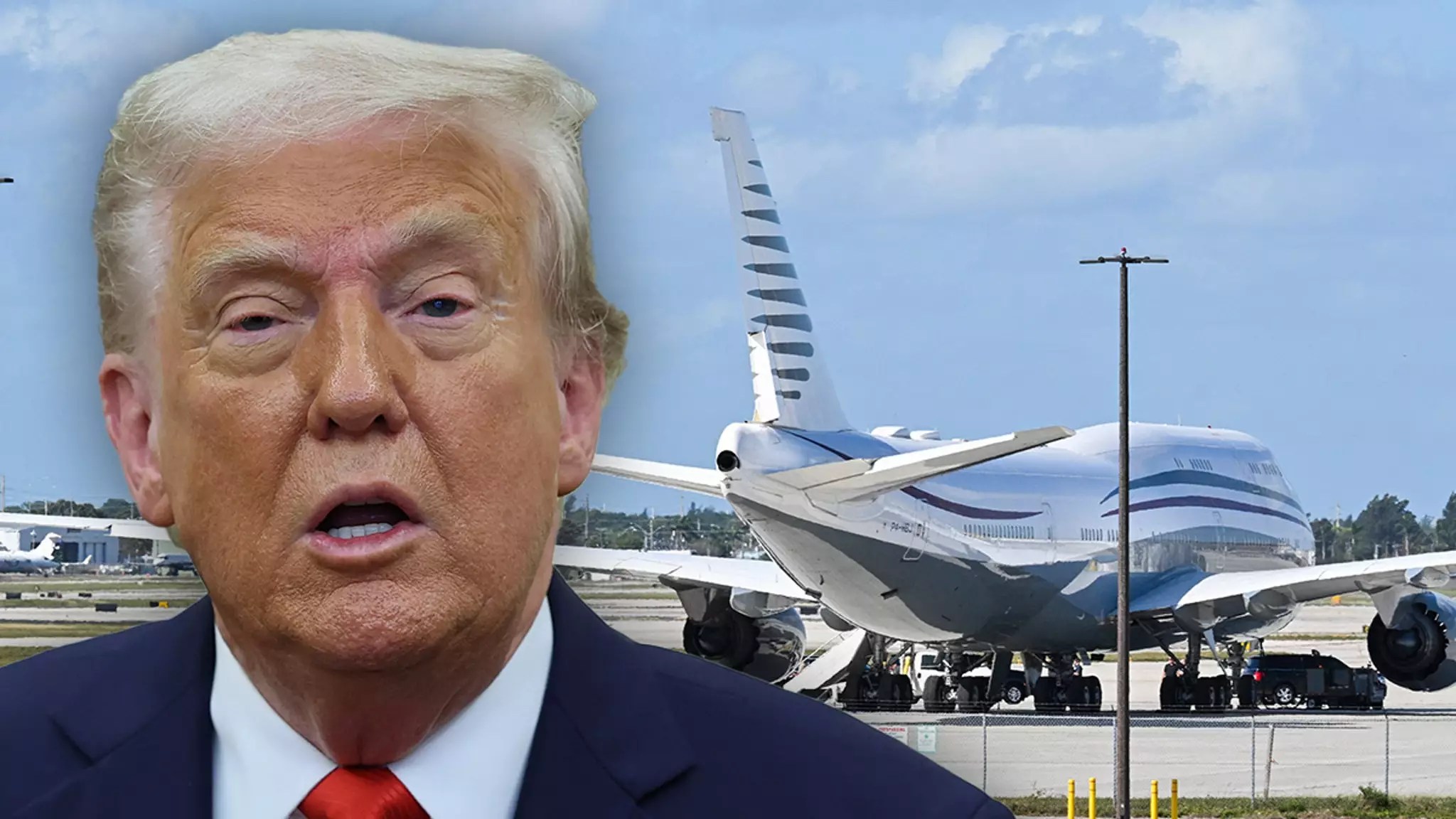In an age where images of opulence dominate the narrative, former President Donald Trump has taken to social media to flaunt what he calls a ‘flying palace’—a Boeing 747-8, reportedly gifted by the Qatari royal family. This isn’t just any aircraft; at an estimated value of $400 million, it’s lauded as the largest passenger plane in the world. Such a show of extravagance raises significant ethical questions about the intersection of luxury and political decorum, particularly in the sphere of foreign relations.
Gifts, Laws, and Ethical Dilemmas
The first red flag waving in the air is the legality of accepting gifts from foreign powers. In the United States, a constitutional ban exists to prevent officials from accepting valuable gifts from foreign governments, a safeguard designed to eliminate any shadow of undue influence. However, the Trump administration has tried to skirt this issue by arguing that the transfer of the plane to the U.S. Defense Department circumvents individual ownership. This rationalization might be viewed as an opportunistic maneuver to accept a lavish gift while sidestepping the legal implications, thereby raising eyebrows and questions from political analysts and the public alike.
Political Rhetoric and Public Response
In typical Trump fashion, the former president used his Truth Social platform to incite his followers, branding the Democratic opposition as “World Class Losers” for their criticisms concerning the transaction. This kind of rhetoric serves to galvanize his base, turning the narrative around from a questionable ethical dilemma into a partisan battle. It’s a well-practiced technique in his playbook, effortlessly tapping into the cultural divide that characterizes much of contemporary American politics. Yet, one can’t help but wonder if this will further alienate moderate and undecided voters who might find such grandstanding off-putting.
Foreign Relations and Personal Gains
Interestingly, the timing of this luxury gift coincides with Trump’s scheduled visit to Qatar, where his son, Eric Trump, has recently struck a deal involving a $5.5 billion golf club investment. The overlap between personal gain and political relationships is glaring. While the former president may claim this acquisition is purely about renewing the aging Air Force One, the potential for deeper investigations into the motives and implications of these foreign dealings cannot be overlooked. It prompting the question: to what lengths will political figures go to maintain their wealthy lifestyles while leveraging international ties?
The Broader Implications for Future Leaders
As we peel back the layers, this scenario may have far-reaching implications for future leaders of the United States. If Trump’s maneuvering sets a precedent, will subsequent administrations feel emboldened to navigate ethical grey areas similarly? The issue extends beyond one man—it’s about the integrity of the office itself. The concept of political gifts needs a rigorous reevaluation, particularly in contexts as politically charged as Trump’s tenure.
In a democracy, the actions of one leader can set unintended precedents for all future governance. The conversations sparked by this event will form the foundation for a national discourse on accountability, ethics, and the true cost of luxury in political life.


Leave a Reply